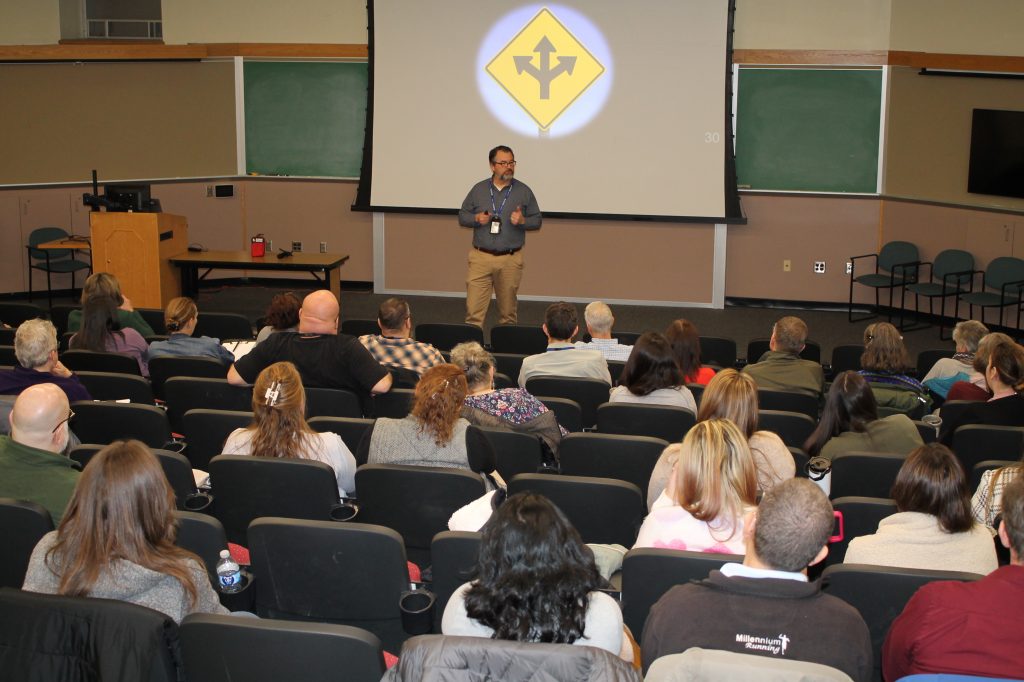Solar Eclipse Planning
State agencies have been working diligently alongside local communities and businesses to prepare for the solar eclipse that will occur April 8.
While all of New Hampshire will experience the eclipse, the northernmost part of the state, from the area of Lancaster north to the Canadian border, will experience totality. The rest of New Hampshire will experience a partial eclipse at about 95% totality. Totality in the Great North Woods will last approximately 3 minutes and 30 seconds and will vary slightly from west to east as it begins and ends.
HSEM started hosting monthly calls with local communities and other stakeholders at the state and federal level in September 2023. As the date of the eclipse nears, those meetings have moved to a more frequent schedule, taking place every two weeks.
ESF TTX
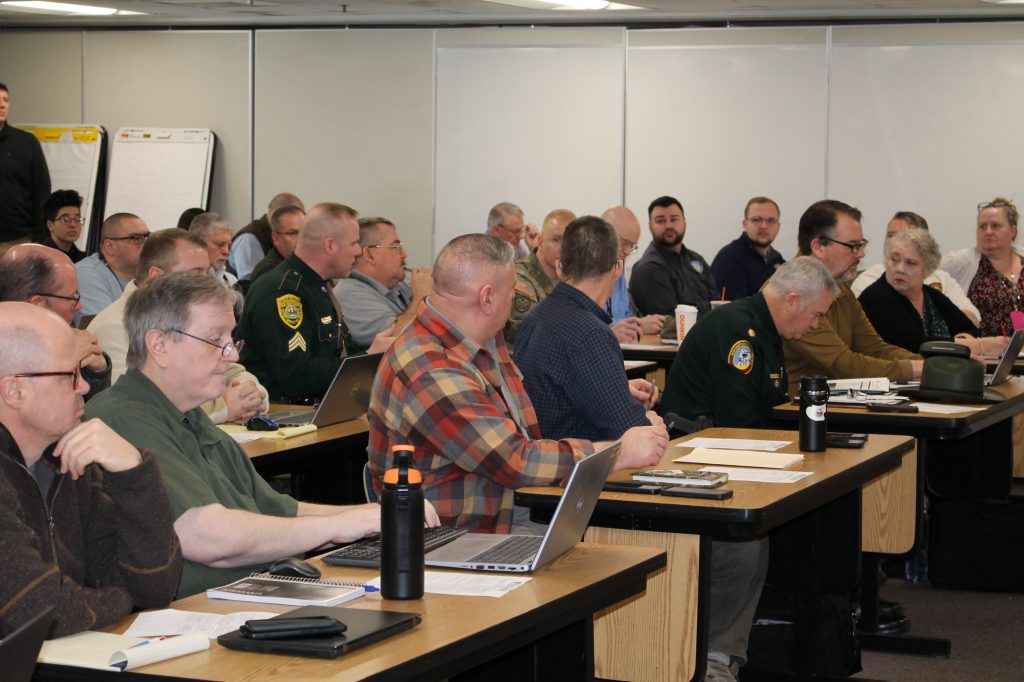
On February 21, the Emergency Support Functions (ESFs) gathered at the NH Fire Academy, to plunge into a table-top exercise (TTX) with potential scenarios for the day of the solar eclipse. Of the 18 ESFs in New Hampshire, all but one had representatives participating. As each ESF shared what they would do in each of the scenarios brought forth by HSEM’s Training, Exercise and Development section, vital information was exchanged between groups like the Red Cross and the State Police. From medical volunteers to tow trucks, to where emergency supplies will be stationed, details were hashed out and strengthened by the support that each ESF showed to another.
Scenarios included a snowstorm and hikers that needed to be rescued.
This TTX saw government and private-sector representatives working on coordination to keep residents and visitors to New Hampshire safe.
Solar Eclipse JIC
As part of the state’s planning, the Joint Information Center (JIC) activated Thursday, February 29, from 8 a.m.-4 p.m. Monday through Friday. The purpose of the JIC is to coordinate information being shared by state agencies to the public and members of the media.
The JIC includes public information officers from the Department of Safety, Department of Health and Human Services, Department of Business and Economic Development, Department of Transportation, Department of Natural and Cultural Resources and the Department of Education.
Since the activation, the JIC has responded to seven inquiries from media and members of the public.
For information about the solar eclipse, visit NHSolarEclipse.com. Members of the media with questions should email jic@dos.nh.gov or call 603-223-6169 with any questions.
Disaster Updates
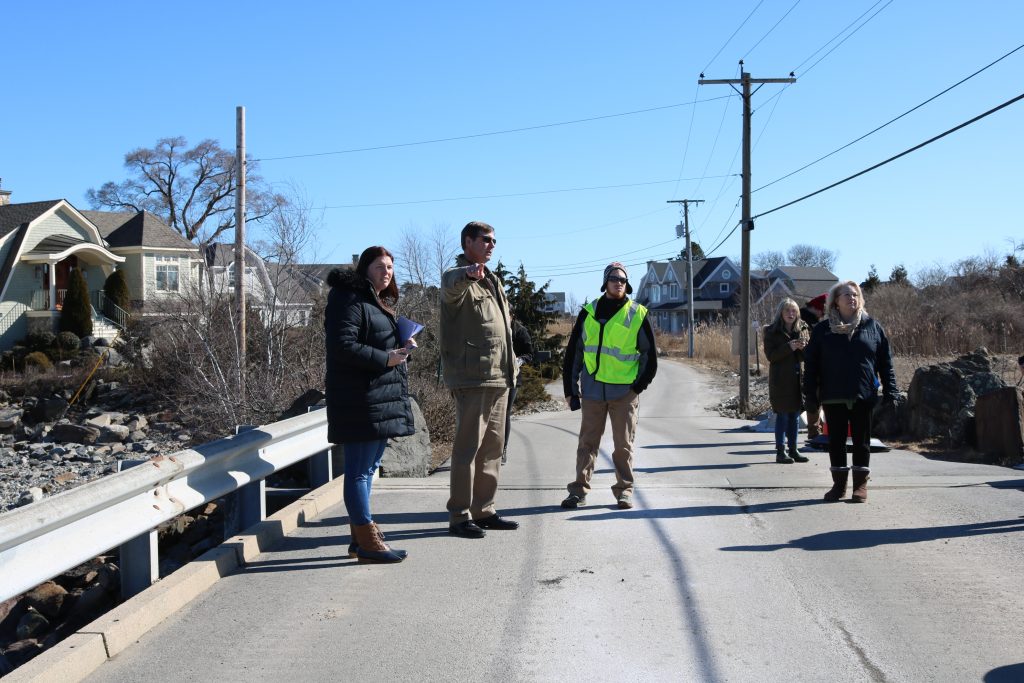
On February 27, President Joe Biden granted a request for a disaster declaration for Carroll, Coos and Grafton counties for a December 17-21 storm that caused significant flooding and damage. The statewide cost for response efforts related to this event totaled $2,642,481.
The declaration grants access to FEMA’s Public Assistance program to communities that incurred damages in those counties.
In addition, declaration also makes federal support available through the Hazard Mitigation Grant Program on a cost-sharing basis for hazard mitigation measures statewide.
On January 10 and 13, storms that struck the state led to significant flooding on the Seacoast and damages in other parts of the state. On February 20, staff members from HSEM along with FEMA began conducting joint preliminary damage assessments. FEMA continues to validate damage and cost information submitted by the local communities to determine whether we have reached the state indicator and individual county indicators.
REP Exercise Cycle
On February 7, NH Homeland Security and Emergency Management along with our federal, state, and local partners in the Emergency Planning Zone (EPZ) took part in the second Combined Functional Exercise for the Seabrook Station graded exercise cycle. Coordinated by HSEM staff, this exercise includes 17 New Hampshire communities, multiple state agencies and the State of Massachusetts. This exercise is an opportunity to ensure that there is good communication between partners. It is one of the largest Combined Federal Exercises in the country.
The graded exercise is scheduled to take place April 3.
Cyber Incident Response Plan
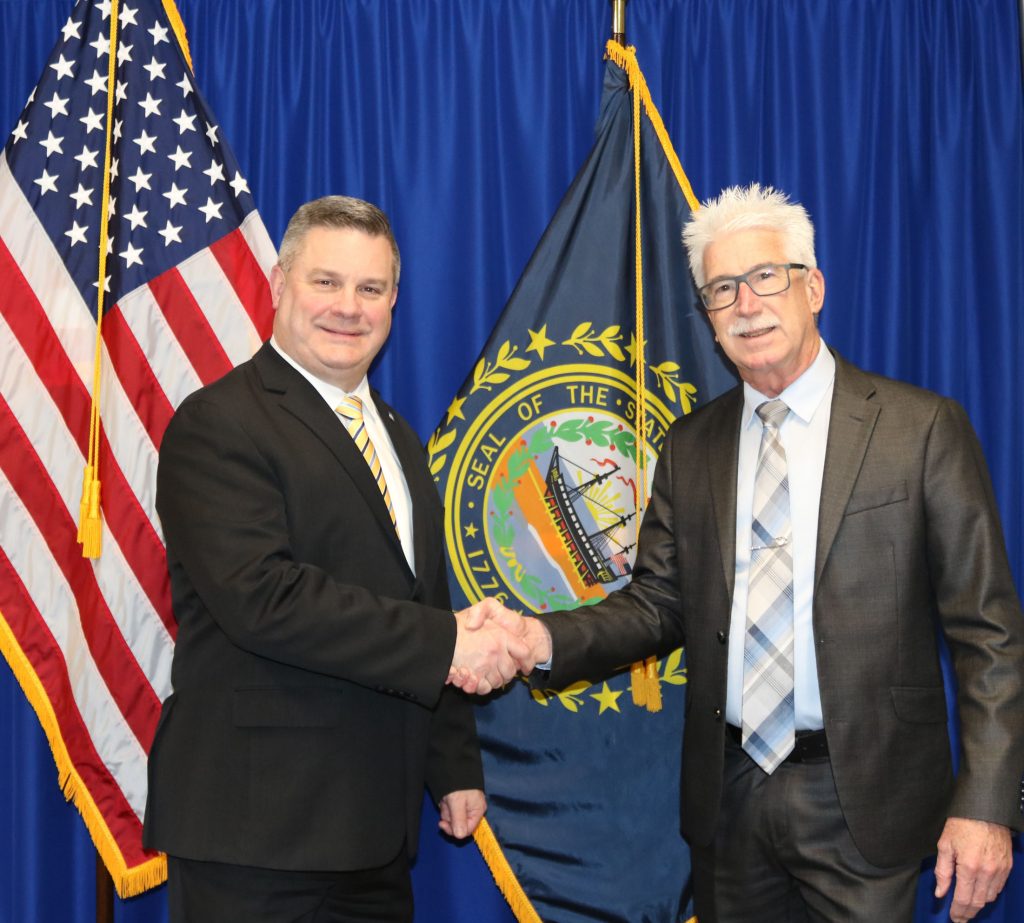
In February, Department of Information Technology, along with HSEM, signed the State of New Hampshire’s Cyber Incident Response Plan.
The plan, developed through a series of tabletop exercises, is a joint effort between the two agencies.
The plan details the response and recovery to cyber incidents in New Hampshire and identifies the roles and responsibilities for agencies who are involved.
The plan seeks to maintain trust with the residents, visitors and business that do business with New
Hampshire.
A copy of the plan can be viewed here.
Stratham Full-Scale Exercise
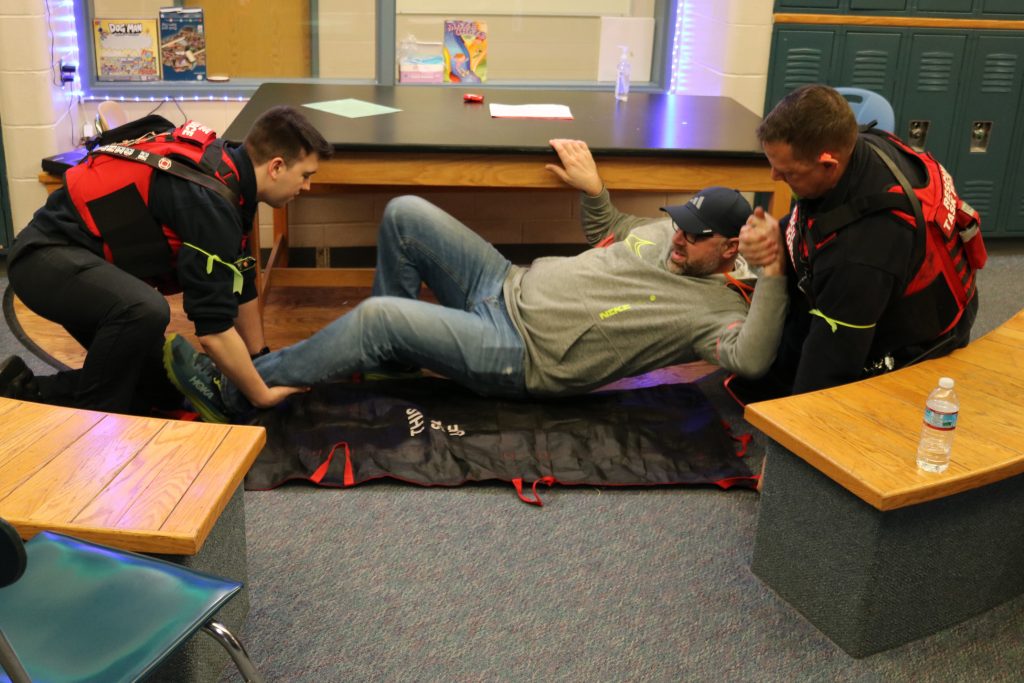
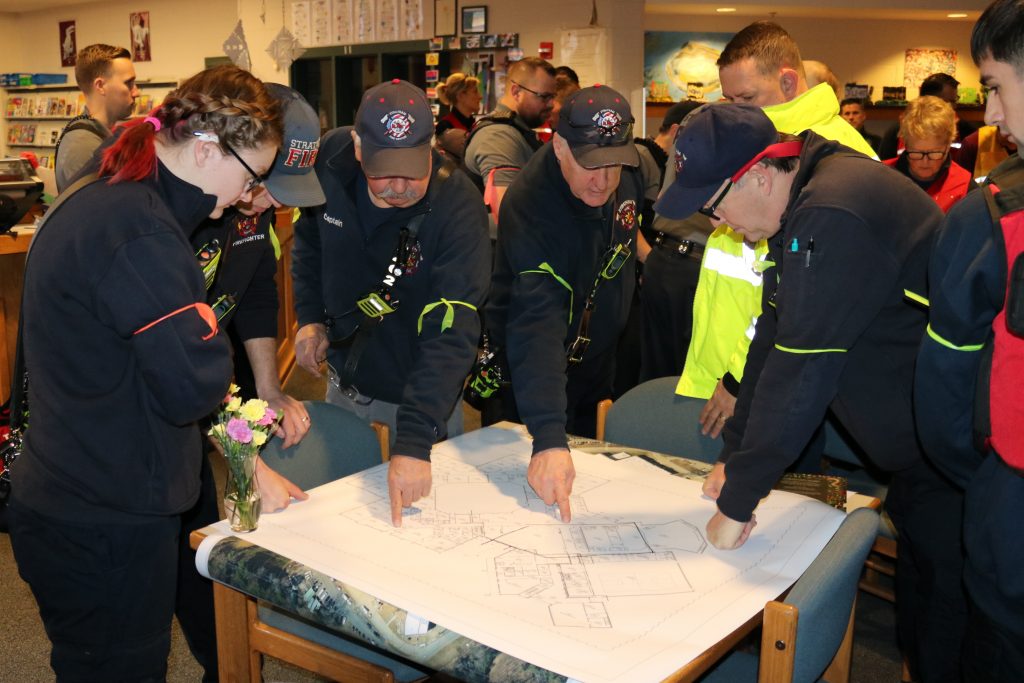
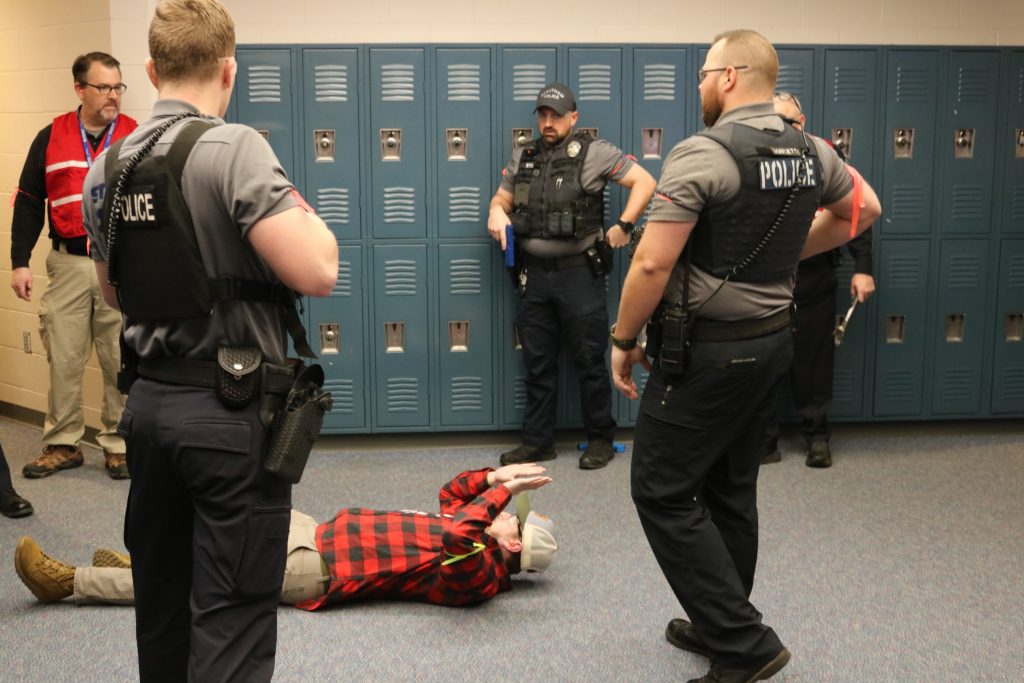
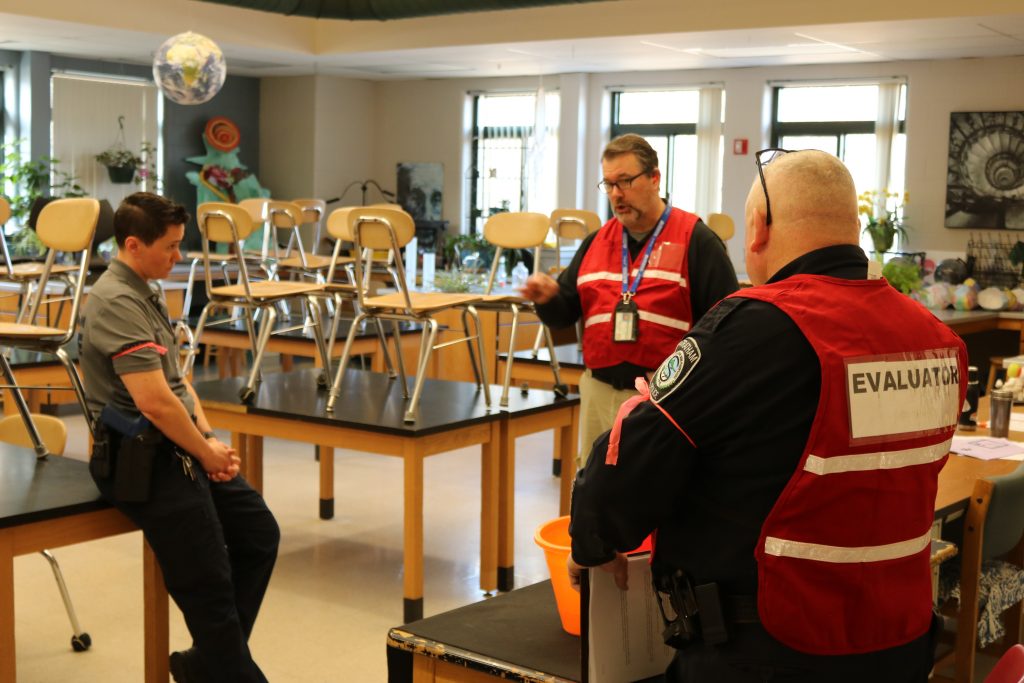
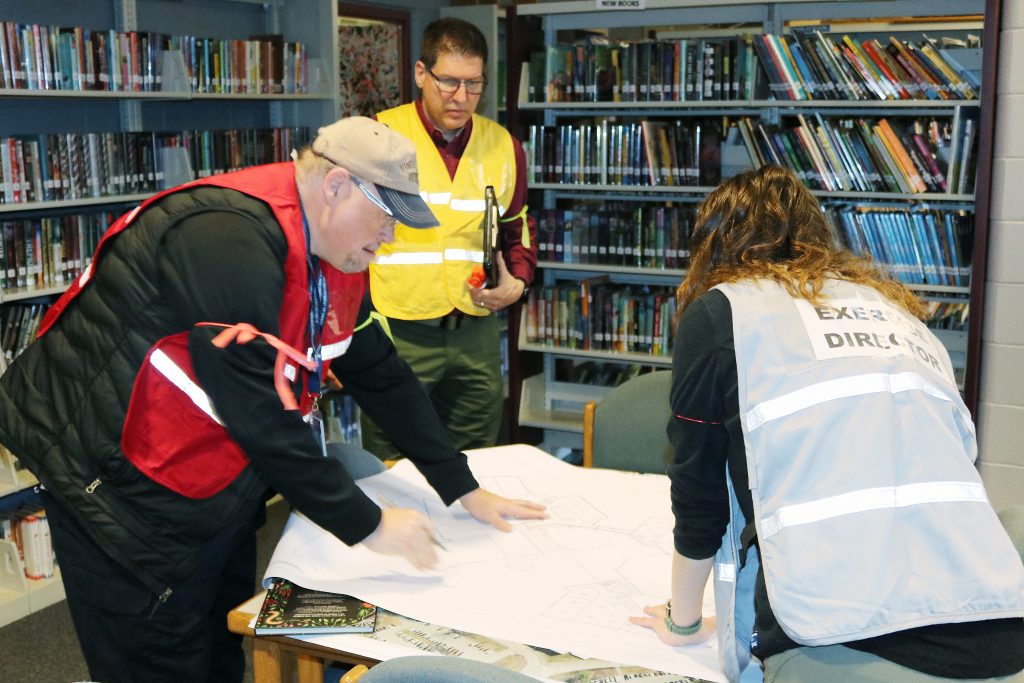
First responders and HSEM staff members participate in a full-scale exercise in Stratham on February 24.
The Town of Stratham held a full-scale exercise coordinated by HSEM on February 24 at the Cooperative Middle School. The planning for the exercise started in October 2023 when the police department asked to conduct training to meet its requirement for the Commission on Accreditation for Law Enforcement Agencies.
The exercise involved four different s scenarios that participants ran through ranging from an active shooter, to a student threat, to triaging victims.
Funding for exercises can come from federal grants. Towns can find information about available grants and apply for them on the HSEM Resource Center.
CRASE Training
HSEM’s Training, Exercise and Development (TED) Section has conducted 17 Civilian Response to Active Shooter Events (CRASE) trainings so far in 2024.
The CRASE course, designed and built on the avoid, deny, defend strategy developed by ALERRT, provides strategies, guidance and a proven plan for surviving an active shooter event.
IPOC Tours
On March 7, a group of students from the Job Corps in Manchester visited the Incident Planning and Operations Center (IPOC) for a tour.
The students got the chance to learn more about HSEM and the State Emergency Operations Center (SEOC) as well as the Transportation Management Center (TMC), and the 911 Public Safety Answering Point (PSAP).
Volunteer organizations, services groups and school classes can book tours by emailing hsempio@dos.nh.gov.
Career Fairs
In February and March, staff members from HSEM attended four career fairs – University of New Hampshire, Southern New Hampshire University, Massachusetts Maritime Academy and Norwich University – and spoke with students and faculty about internships, job opportunities and our agency programs. At the end of March, HSEM is scheduled to attend two more career fairs. One at Rivier University and the other at Plymouth State University.
Our current job openings can be found here. Anyone wishing to apply for an internship can fill out the application form here.
Upcoming Training
G191 EOC/ICS Interface, New Hampton, April 9, 2024 8:00am-5:00pm
Pre-requisites: IS-0100 An Introduction to the Incident Command System, ICS 100, IS-0700 An Introduction to the National Incident Management System, IS-0800 National Response Framework (NRF), An Introduction, IS-0200 Basic Incident Command System for Initial Response, ICS 200 or IS-2200 Basic Emergency Operations Center Functions. https://prd.blogs.nh.gov/dos/hsem/?page_id=561&ee=1500
This course will enable the participants to develop an effective interface between the Incident Command and the Emergency Operations Center (EOC) by applying the Incident Command System (ICS) principles. This one-day course will introduce you to the roles of the Incident Command System (ICS) and Emergency Operations Centers (EOCs) during emergency operations and discuss ways to develop an ICS/EOC interface implementation strategy or action plan for your community. The target audience includes personnel associated with on-scene Incident Command, and EOCs and Multiagency Coordination (MAC) System entities.
NHEDA Annual Training Conference, Bartlett, NH (Grand Summit Hotel), April 15-17, 2024 https://www.nheda.org/2024conference
Join the NH Emergency Dispatcher Association at the 2024 Training Conference and Vendor Exposition!
Topics of interest are (but not limited to):
Communications Center Management
Cutting Edge Development / Technology/ Cybersecurity
Leadership Development
Frontline Telecommunicator
Health and Wellness in the ECC
NG 911
Radio and Wireless Communications
Questions? Contact Cassie Leavitt: cleavitt@hamptonfirerescue.com
L0105 Public Information Basics, Milford, NH, May 7-9, 2024, 0800-1700
FULL Waitlist only Contact Gregory.P.Gabrielli@DOS.NH.GOV
Prerequisite: IS-29 Public Information Officer Awareness.
This three-day class will equip the participants with the skills needed to be full or part-time PIOs, including oral and written communications; understanding and working with the media; and basic tools and techniques to perform effectively as a PIO, both in the proactive/ advocacy times and crisis/ emergency response. This is the replacement for the old G290 and G291.
2024 GSHCC Conference, Manchester, NH Southern New Hampshire University, May 8, 2024, 0900-1545
https://nhha.regfox.com/2024-gshcc-conference-
The GSHCC is pleased to announce registration has launched for the in-person 2024 Granite State Health Care Coalition Conference, A Brand New World: Leaning into New and Emerging Threats on May 8, 2024 at Southern New Hampshire University in Manchester, NH.
Please feel free to share conference registration information with colleagues and partners. This conference will not be recorded, however session information will be made available with speaker permission. There is no cost to attend this conference however, space is limited. While CEUs will not be offered, contact hours will be made available upon request.
Please register here.
About the Conference:
2024 GSHCC Conference Who is invited: All partners from across the healthcare, public health, Emergency Medical Services, and emergency management landscape in New Hampshire.
Conference sessions
This year’s conference includes four plenary sessions with industry leaders designed to assist all partners in recovery, preparedness, and mitigation efforts. Additional session information can be found upon registration.
Plenary Sessions
Resilience After Community Violence is Possible
April Naturale, VP Disaster Services, Vibrant Emotional Health
How We Evacuated Two Hospitals Amidst Colorado’s Marshall Fire: Managing the Chaos, Being Okay with Being Uncomfortable and Critical Relationships
Chris Mailliard, Manager –Safety, Security, and Emergency Management, Presbyterian/St. Luke’s & Rocky Mountain Hospital for Children;
Michelle Deland, Executive Director, North Central Region Healthcare Coalition
Learn ‘Life or Death Listening’ from a former FBI Hostage Negotiator
Michelle Kelley, former FBI hostage negotiator (retired); US Lead, The Listening Institute
Lessons Learned from the Signature Healthcare Brockton Hospital Fire and Evacuation
Claire Berube Sears, HEM, Emergency Management and Environmental Safety Program Manager, Signature Healthcare
Please reach out to gshcc@healthynh.org with any questions or concerns.
MGT-347 Incident Command System (ICS) Forms Review, MGT-904 Intermediate ICS for Expanding Incidents (ICS 300), Concord, NH, May 14-16, 2024, 0800-1700
Must register for both
MGT-347 ICS Forms Review: https://prd.blogs.nh.gov/dos/hsem/?page_id=561&ee=1489
MGT-904 ICS 300: https://prd.blogs.nh.gov/dos/hsem/?page_id=561&ee=1490
Prerequisite: IS-100.b, IS-200.b, IS-700.a, and IS-800.b must be completed prior to registration
Building on the prerequisite ICS 100 and ICS 200 courses, this ICS 300 course focuses on the Incident Command System (ICS) for supervisors in expanding incidents. ICS 300 outlines how the NIMS Command and Coordination component supports the management of expanding incidents as well as describes the incident management processes as prescribed by ICS. This course has a threaded activity that will give students the opportunity to practice implementing the incident management process and creating an Incident Action Plan (IAP) for a simulated expanding incident.
AWR-345 Unmanned Aircraft Systems in Disaster Management, Portsmouth Fire Station 2, May 22, 2024, 0800-1700
https://ndptc.hawaii.edu/training/delivery/3633/
Unmanned Aircraft Systems (UAS) are an emerging technology that are revolutionizing disaster management. This course is an introduction to UAS use in disaster management, from mitigation and preparedness to response and recovery. It is intended to help participants gain a basic understanding of UAS; learn the general concepts to help an agency build a successful UAS program; learn the importance of engaging the local community; understand the need to ensure that privacy issues, civil rights, and civil liberties are thoroughly addressed; identify when UAS would enhance a disaster mission; and understand the basics of UAS types and sensors. The overall course goal is to provide a basic overview of UAS so that agencies can learn the first steps in determining if UAS are right for their work.
Participants will learn what is covered under UAS regulations, who may operate UAS, what FAA authorization allows, and what the major issues are for UAS integration. The course materials will familiarize participants with the main types and capabilities of rotary and fixed-wing UAS, as well as the types of payloads and missions that generally are best for each with examples of how certain payloads have been or could be used in relevant situations to aid in disaster management.
The course provides an overview of several important elements that require full consideration when creating and operating a UAS program, including involving the local community in all stages of UAS program development, and the critical need to protect privacy, civil rights, and civil liberties in a UAS program, including with data collection, retention, management, security, oversight, and accountability.
AWR-328 All Hazards Preparedness for Animals in Disasters, Hanover, NH Dartmouth College, June 11, 2024, 0800-1700
Prerequisites: *Participant must be a U.S. citizen or a foreign national approved by DHS. IS-100: Introduction to Incident Command System (ICS), IS-200: Basic Incident Command System for Initial Response and IS-700: An Introduction to the National Incident Management System (NIMS).
https://prd.blogs.nh.gov/dos/hsem/?page_id=561&ee=1519
This course will provide livestock producers, emergency managers, veterinarians, extension agents, veterinary technicians, rural community leaders, public and human health personnel, fire, and law enforcement with tools to protect, respond to, and recover from the consequences of disasters (e.g., fire, flood, heat, earthquake, tornadoes, hurricanes, hazardous materials, and catastrophic disease exposure) involving animals in rural communities. The course will introduce participants to the unique issues that must be considered and addressed when animals are involved in an emergency such as safe animal handling, animal evacuation, animal sheltering, humane euthanasia, carcass disposal, inclusion of animal management into existing ICS structures, and federal support available during recovery.
MGT-448 All Hazards Planning for Animal, Agricultural, and Food Related Disasters, Hanover, NH Dartmouth College, June 12, 2024, 0800-1700
https://prd.blogs.nh.gov/dos/hsem/?page_id=561
Prerequisites: *Participant must be a U.S. citizen or a foreign national approved by DHS. IS-100: Introduction to Incident Command System (ICS), IS-200: Basic Incident Command System for Initial Response IS-700: An Introduction to the National Incident Management System (NIMS), and IS-800: National Response Framework, An Introduction. Recommended (not required): AWR-328: All Hazards Preparedness for Animals in Disasters, AWR-117: Preparing Communities for Animal, Plant, and Food Incidents, An Introduction, MGT-383: Emergency Operations Plans for Rural Jurisdictions, and IS-2901: Introduction to Community Lifelines (Web-based).
This course will provide the background information needed to lead a multi-agency team of emergency planners in the development of an ESF annex for food and/or animal related disasters to supplement their community’s existing EOP. The course will address topics such as agroterrorism; detection and diagnosis; the unique challenges that rural communities face in planning for and responding to food and/or animal related disasters; utilization of Emergency Support Functions (ESF); recovery and the importance of sustainable operations during a disaster event; and mapping a community to identify areas of vulnerability and resources. All content will be presented at an all-day instructor led training that will include presentations and problem-solving activities that will be worked on in small groups.
MGT-905 Advanced ICS-400 Command and General Staff-Complex Incidents, Concord, NH, July 30-31, 2024, 0800-1700
https://prd.blogs.nh.gov/dos/hsem/?page_id=561
Prerequisite: IS-100.b, IS-200.b, ICS-300, IS-700.a, and IS-800.b must be completed prior to registration
ICS 400 is intended for an audience of experienced responders and other senior emergency management personnel who may perform in a management capacity for major or complex incidents (Type 1 or Type 2 incidents). Large and complex incidents that require the application of area command do not happen often. Although this is an advanced ICS course, it is not intended to develop mastery of area command. The purpose of this course is to expose students to the concepts of utilizing area command in major and complex incidents.
L0105 Public Information Basics, Concord, NH, August 12-14, 2024, 0800-1700
https://prd.blogs.nh.gov/dos/hsem/?page_id=561
Prerequisite: IS-29 Public Information Officer Awareness.
This three-day class will equip the participants with the skills needed to be full or part-time PIOs, including oral and written communications; understanding and working with the media; and basic tools and techniques to perform effectively as a PIO, both in the proactive/ advocacy times and crisis/ emergency response. This is the replacement for the old G290 and G291.
L-0388 Advanced Public Information Officer, Concord Area, September 23-27, 2024, 0800 1700 https://prd.blogs.nh.gov/dos/hsem/?page_id=561
Prerequisites: IS-29.a, IS-42, IS-100.b, IS-200.b; IS-201(Waived if current ICS-300 completed), IS-247.a: or IS-251; IS-700.a; IS-800.b and E/L0105 – Public Information Basics
This five-day course training curriculum includes courses delivered at the awareness, basic, intermediate, advanced, and master levels. The awareness, basic and intermediate level courses were developed by EMI and teach basic skills and techniques for use during small, localized, single-agency responses; preparedness campaigns; and escalating localized responses. The advanced level course teaches participants additional skills for use during escalating incidents, including strategic communications and incident action planning as it relates to Joint Information Center (JIC) operations.
Nationwide Suspicious Activity Reporting (SAR) Initiative (NSI) Fundamentals, Virtual, Available 24/7/365
https://www.dhs.gov/form/nsi/nter
This one-hour Suspicious Activity Reporting (SAR) Fundamentals training course provides an interactive overview of the Nationwide SAR Initiative (NSI). It provides users an understanding of the evaluation process used to determine whether identified behavior adheres to the Information Sharing Environment Functional Standard criteria, in accordance with privacy, civil rights, and civil liberties protections. This training is available to federal, state, local, tribal, territorial, and private sector homeland security partners.
Health Sector Emergency Preparedness, Virtual
https://cdp.dhs.gov/training/course/AWR-336-W
This course content is to provide training and resources to emergency management officials, healthcare coalitions, healthcare providers and suppliers. The course focuses on the general overview of emergency planning and preparedness; development of policies and procedures; creation of communication plans and training and exercises for healthcare entities.

